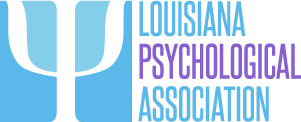Diet culture puts unrealistic pressure on everyone — children and adults alike — to live within a narrow range of false and dangerous ideals. It does not accept that healthy people can come in many shapes and sizes. Diet culture sends the wrong message that people need to be in thinner bodies in order to be valued, and mistakenly pressures people to value being thin even when thinness may be disconnected from any real health benefits.
Being useful should not be confused with being busy — it’s important that our actions have meaning to us and to others. What makes for meaningful, or useful, actions vary.
The anniversary of a hurricane or other disaster can provide an important opportunity to review a client’s gains as well as process reactions to the disaster, continue to work through grief responses, and collaborate to cope with unhelpful reactions ahead of time. Anniversary reactions that are more intense may require more targeted treatments for trauma, anxiety, or other significant symptoms.
Let’s pause and think about the word “trust.” It is such a powerful word. It is likely flattering when someone says they trust you. And it is likely worrisome when someone says they do not trust you. Yet, whether it is an absence of trust or simply a tarnished trust, we must understand the human dynamics before we can ameliorate human relationships hampered by trust issues. The following will explore the meaning of the word trust as it applies to a person’s trust of another person.
How do we fight an invisible enemy that requires us to go against our basic values, to change our behaviors, our way of life.
We Americans are having a tough time making this transition. In order to succeed against this invisible enemy, we must change our perceptions and behaviors. We must re-structure our concept of freedom and we must change our behaviors.
When we are under high stress, it can be tempting to put off self-care. This can be especially true when our pre-covid routines have been so disrupted. But I hope that many of us have self-care activities that we have been able to keep, and perhaps have been able to find new ones. One of my favorites for myself and my clients is mindfulness, which is perhaps best practiced in isolation, and can be practiced almost anywhere and anytime we can find a few moments.
Since the pandemic started earlier this year, I’ve found myself in the interesting position of not only using theme hints to establish common language between myself and my individual clients, but in using the SAME themes across different clients in order to navigate what seem to be very common concerns among the majority, if not the entirety, of my caseload: coping with an increased sense of isolation, anxiety related to the uncertainty of the future, an increasing sense of powerlessness regarding one’s circumstances, and the mind-numbing sameness of the day-to-day in this “new normal.”
When I introduce myself as a sex therapist to other mental health providers and professionals in the medical field, I get a mixed bag of reactions. Some respond with enthusiastic curiosity about the strangest cases I’ve worked with in the past. More often; however, I encounter providers who give me a sideways glance and mutter an uneasy, “Oh, that’s interesting.”
In 2015, the American Psychological Association (APA) released a task-force technical report on video-game violence with a concurrent resolution statement linking violent games to aggression but not violent crime. The task-force report has proven to be controversial; many scholars have criticized language implying conclusive evidence linking violent games to aggression as well as technical concerns regarding the meta-analysis that formed the basis of the technical report and resolution statement.
Louisiana is a resilient community, but we work best when we work together. Southwest Louisiana is a community that prior to this storm was underserved in mental and behavioral health. I know that our public affairs committee will be meeting so that we can organize resources as we become aware of needs. From past experiences, we know that each disaster is unique and that it is often best to listen to impacted communities, allow them to express their needs first, then organize response with what is needed rather than making assumptions.
